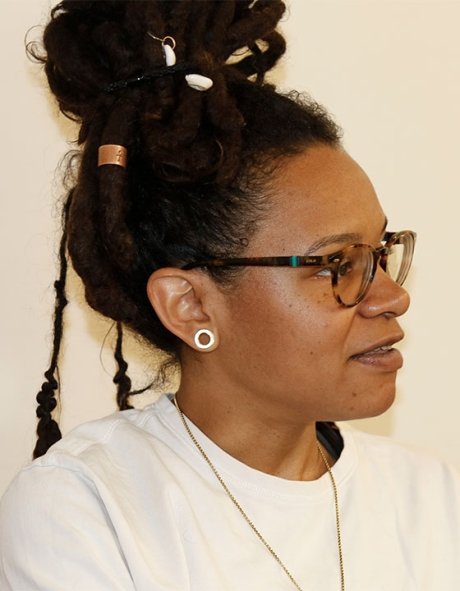
Amplifying the joy in the Black community rather than the pain.
From the moment Jalisa Torres attended her first class in a “Remembering and Forgetting Slavery” course, she knew that Africana studies would be a life-changing endeavor.
“As a Black and Puerto-Rican woman, I was learning so much about my culture,” Torres says. “Africana studies made my academic experience worthwhile and challenged what I thought college could be.”
Torres, who graduated with summa cum laude honors in Spring 2024, says the biggest takeaway from being an Africana studies major was the sense of community and belonging she cultivated with professors and classmates.
“Through this program, I have sisters for life and professors who mean more to me than just professors,” she says. “Ultimately, fellow students and the professors have shaped how I think about and view my position in the world. I left the program with a nuanced understanding of identity, race, social justice and injustice. That’s something I carry with me in my daily life professionally and personally.”
Torres says her favorite Africana studies course was “Black Joy,” created in 2023 by RIC Assistant Professor and Africana Studies Director Sadhana Bery. The course was designed to show how Black joy is created in everyday life from storytelling and family cooking traditions to music and gardening, Bery says.
“I learned through that course to amplify the joy in the Black community rather than the pain,” Torres says. “Refusing to accept anything less than joy is the ethos I strive to keep with me.”
Torres maintains that the lessons she learned gave her insight into her current role as a wellness specialist for Concern Housing, a nonprofit agency committed to helping individuals and families live with dignity through housing and support services. Concern is one of the largest housing agencies of its kind in New York, serving over 1,500 individuals and families in 250 locations.
“I work with adults living with disabilities who have experienced houselessness and are currently living in supportive housing,” says Torres, a Brooklyn, N.Y., native. “As their advocate, I link them to community resources, such as medical, vocational and educational support.
“I learned through the Africana studies program the role race, disability and class have played historically, thus allowing me to think creatively with clients about achieving their desired goals.”
She also guides her clients, who include military veterans, through the web of hoops to access healthcare.
“There are so many systemic gaps in healthcare,” she says. “In my field, I have observed healthcare professionals who act callous towards marginalized people. They feel that our clients are making excuses and should just pull themselves up without much support in place. I’m all for encouraging and promoting independence but I also have a level of empathy and personal awareness of how tough it is to pull yourself up when you’re experiencing defeat after defeat by the hands of the system.”
Her push to inspire empathy comes from a phrase she learned in Africana studies coined by civil rights leader and activist Angela Davis: “I am no longer accepting the things I cannot change. I am changing the things I cannot accept.”
Torres says if students should choose a major or minor in Africana studies, they will be better off for taking the journey.
“If you want to become an advocate and agent for change, take this program,” she says. “If you want to build revolutionary ideas, take this program. And if you want a level of belonging, take this program. Africana studies has brought me value beyond measure.”
